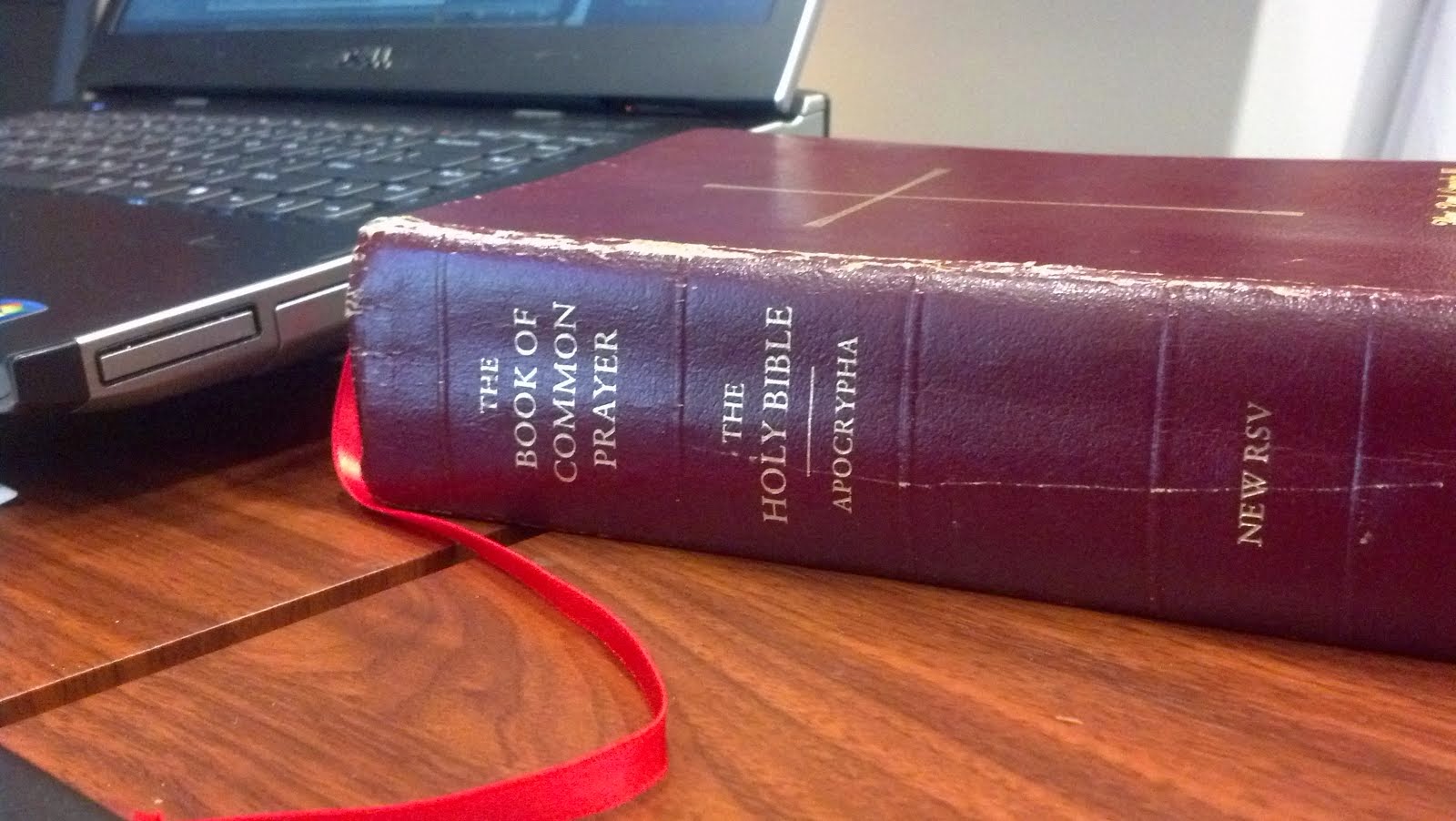St. David’s, Washington
Proper 28, Year C
You know… there’s a lot of pressure when it’s your first sermon as the seminarian. You want to show that you know a little something so you don’t come across as naïve. You also have to be careful against trying to pack a little bit of everything from the past year or so of seminary into one sermon. But you also don’t want neglect that you are indeed a student and very conscious of your continued active learning. Which is good news… because a conversation from my church history class this week led to some inspiration for today’s sermon.
I found myself this week defending, of all things, the use of icons in worship and prayer. An icon, images of Jesus or a saint, is a great tool of prayer IF that’s what helpful to you. I know plenty of people for whom icons are a great source of inspiration for their prayers. We were having this discussion about a work entitled On Divine Images, by John of Damascus, which was an argument in favor of the Eastern Church’s use of icons. One of my classmates kept referring to icons as idols. I stopped her and said, “You do mean ‘icons,’ right, not idols.” She shrugged her shoulders at me and said, “You know, it’s really all the same.”
“Oh, no no no!” I said. “There is a big difference between an ‘idol’ and an ‘icon.’” In short, here’s what I said:
See this bottle. If I were to hold up this bottle and say, “Oh bottle, you are my protector and my salvation. From you, oh bottle, comes all my source of strength, yadda, yadda, yadda…,” then this bottle would be my idol.
BUT!
When I look into the bottle, I see the water. What’s IN the bottle reminds me of all the ways God has used water to full-fill God’s purposes in this creation. I can see this water and be reminded of how God’s spirit moved over the deep, new waters at the creation of the Earth. I can see this water and be reminded of the waters of baptism. I can see this water and be reminded of the water that will co-mingle with the wine at the Eucharist. I’m not worshiping the water it self, but I’m seeing the water as a window to remind me of all the ways that God has used water to carry out the Divine plan.
I was thinking about this story and our Baptism this morning of Phoebe Merritt at the 11:15 service. And then I thought about our Gospel lesson this morning. After thinking, “Woah! Major trial by fire for the seminarian!” I focused in on two things: “I will give you words and wisdom” and “I will with God’s help.”
This is one of the more difficult passages of Luke’s Gospel. Luke, drawing on Mark’s Gospel, is recounting Jesus’ prediction of doom & gloom to a group of followers, many years after the Resurrection, who were already facing persecution from the religious and civil authorities. It’s not easy to hear Jesus talking about wars, insurrections, famines, and plagues. It’s much easier to hear him talk about how the meek shall inherit the earth or how he raised Lazarus from the dead. It’s not as easy to hear “Let the dead bury the dead,” and “whoever does not hate their father and mother cannot follow me.”
But, as they say, every cloud has a silver lining, and ever scriptural passage that sounds hopeless and miserable has more than a glimmer of hope. Jesus says to the nameless crowd around him, “I will give you words and wisdom.”
Every time we witness a Baptism or Confirmation, we affirm that we will continue in the apostles’ teaching, we will proclaim by word and example the Good New of God in Christ, and that we will strive for justice and peace among all people. And we make these affirmations by saying, “I will with God’s help.” We acknowledge our reliance on God to help carry out God’s work in the world, knowing that we cannot accomplish these task without God’s guiding hand.
But what do we make of this line “I will give you words and wisdom”?
In the spring of 1998, three massive tornados swept through downtown
We have a God who loves us more than words can possibly describe or even imagine. Jesus never promised us a rose garden. There is plenty of scripture to back that up. But there is also plenty of scripture to back up the claims of a God who didn’t just put us on this Earth to let us flap in the wind.
When we remember that we do not have a God who has or will ever forsake us, we are free to live out the life God has called us to live. We can be empowered to be the light of Christ that the world so desperately needs to see. God is not the earthquake. God is not the tornado. God is not the rubble, and God is not the water. God is standing beside us in our troubles & trials, giving us words and wisdom, and giving us the help we need as we strive to do God’s work in the world. And God is in the waters of baptism that wash over all of us.
May we be continually sustained by the grace of Christ who seeks to fill our hearts and our lives.
AMEN

